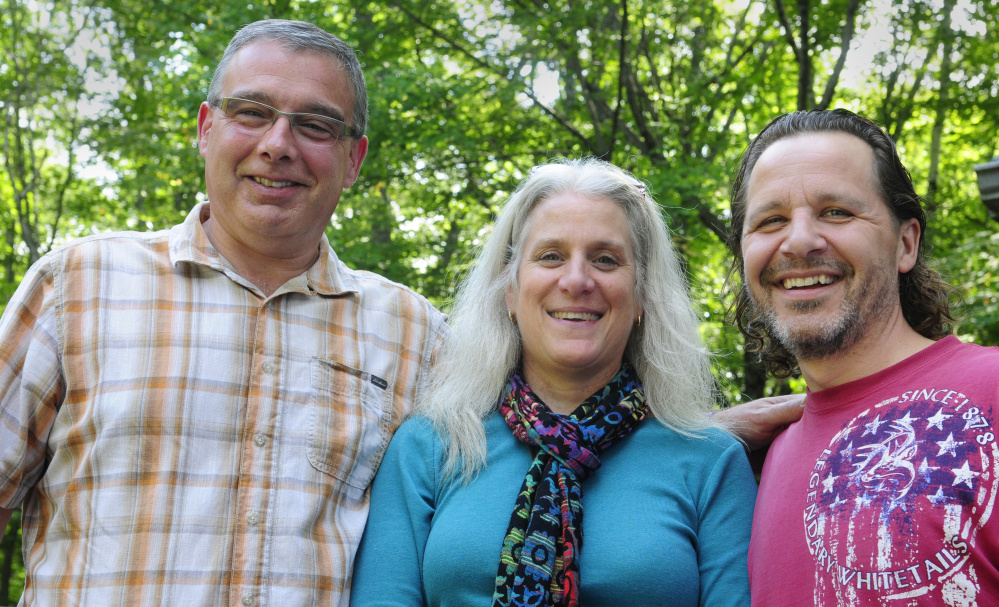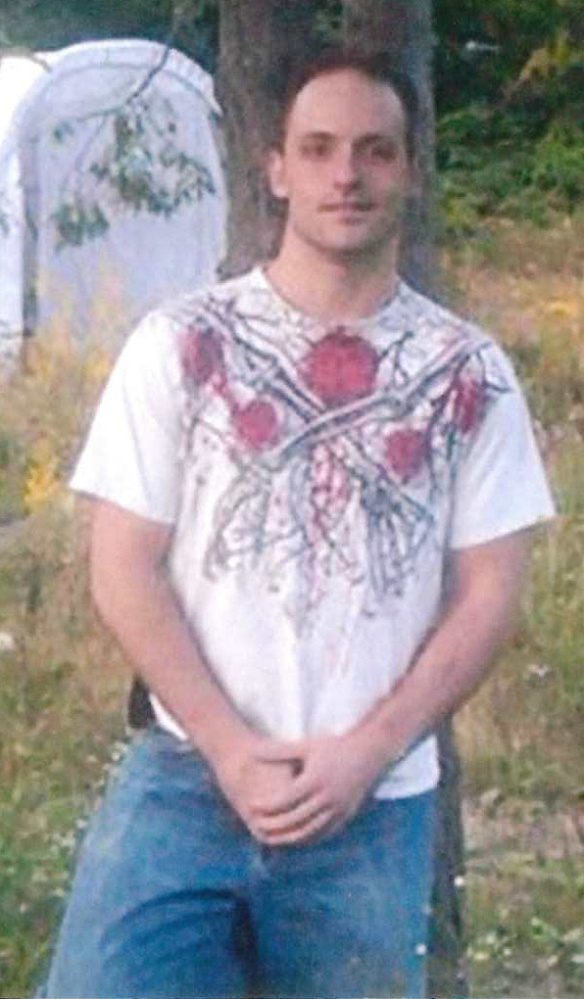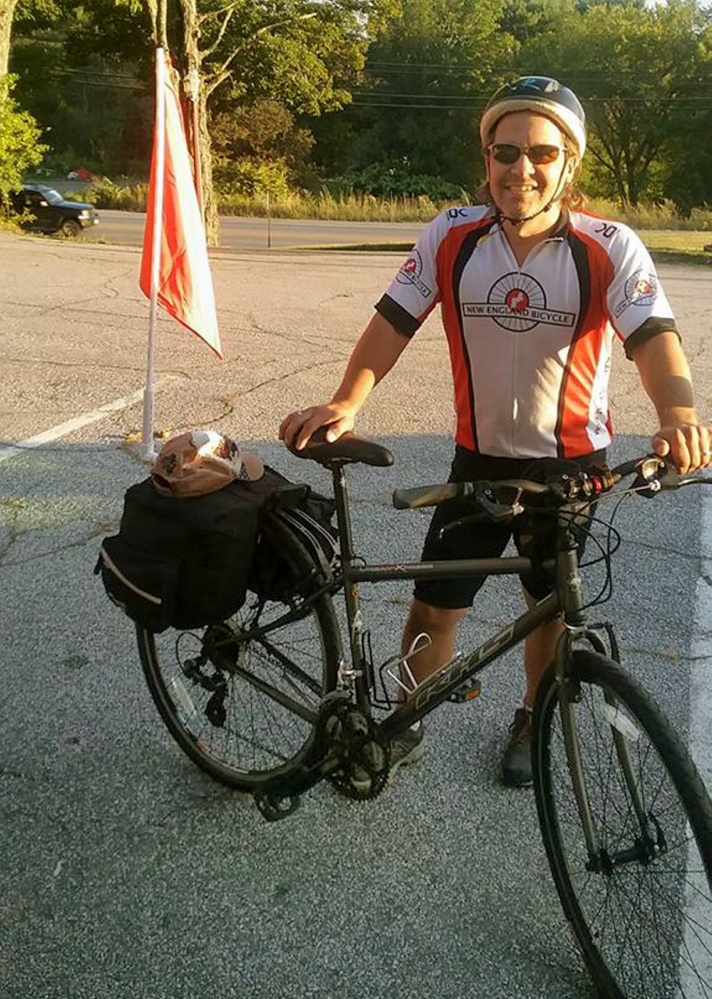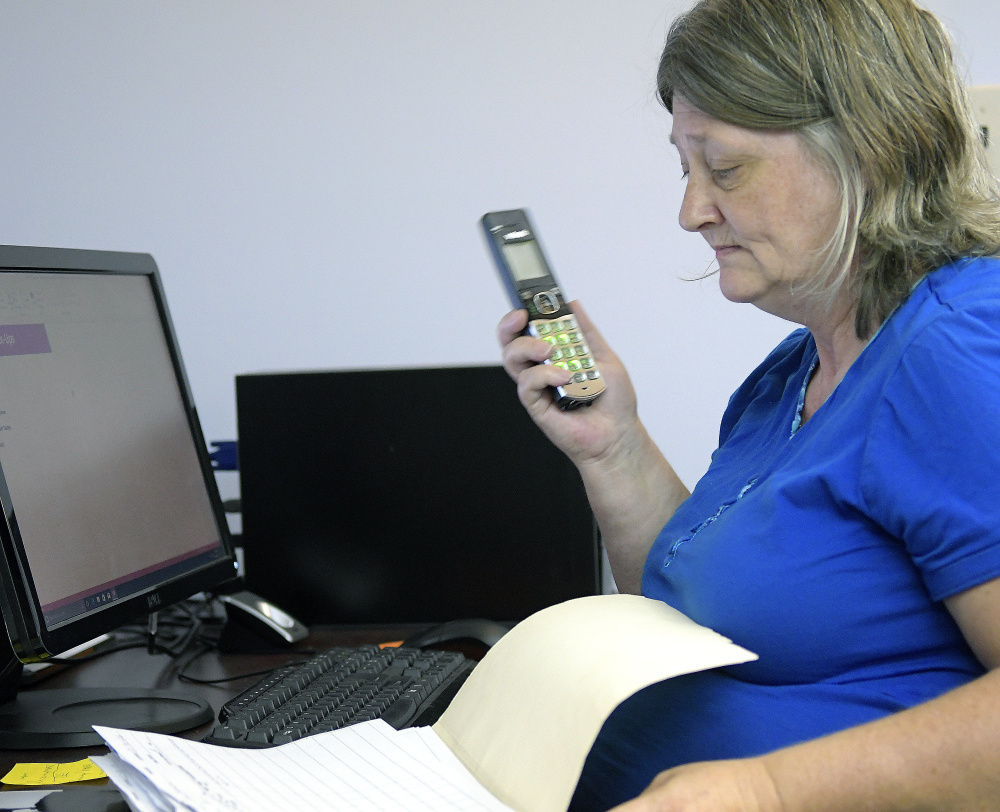AUGUSTA — From a young age, Douglas Buotte wanted to be a protector.
The Augusta native hoped to join the police force, and on two occasions, he saved a child in his extended family from harm, once stopping the boy from sticking a finger in an electric outlet, and another time catching the boy like a football when he fell off a set of stairs.
Buotte’s mother, Rebecca Hanscom, remembers two times when she was driving with her son and he insisted, for unexplainable reasons, that she take a different route. In both cases, she later learned, a car accident had occurred on the route he told her to avoid.
“He saved me,” Hanscom said of those occasions. “I think he had a certain sixth sense type of thing.”
One person Buotte couldn’t protect was himself.
After struggling for years with mental illness and drug addiction, he died on July 2, 2010, after taking a powerful opioid painkiller, fentanyl, that had been prescribed to his grandmother for her stage 4 lung cancer. He was 29.
“Growing up, he always said he’d never see 30,” Hanscom said. “And he didn’t. He died two weeks before his birthday.”
Since Buotte died in 2010, the number of Maine deaths attributable to drug overdose has climbed and broken records.
In 2016, 376 people died from drug overdoses, and more that 80 percent of those involved heroin, fentanyl or prescription painkillers such as OxyContin, according to an April report from Maine Attorney General Janet Mills. That marked a nearly 40 percent increase from the previous year, and the epidemic now kills an average of one Mainer a day.
All that substance abuse has had a profound effect on the loved ones of the addicted, whether they are friends and family of the dead, or those who worry the same fate could befall their son, daughter, father, mother, husband, wife, boyfriend or girlfriend.
EFFECTS ON THE FAMILY
One clear consequence of the soaring rates of drug abuse is that family members have been increasingly called upon to raise orphaned and vulnerable children.
The state Department of Health and Human Services removed 440 children from their homes in 2015 because of their parents’ drug abuse, which was just over half the children removed from homes that year, The Associated Press reported in February. That was up from 282 in 2009.
For almost two decades, Hanscom, now 54 and living in Jefferson, has been raising Buotte’s son and daughter. Their mother also abused drugs, Hanscom said, and Buotte signed custody of the children over to Hanscom when they were infants. They are now 17 and 18.
“That was very sad,” recalled Hanscom, who runs a support group for friends and family members of people affected by substance abuse. “I was working. I was divorced. I was alone. So I had to pay day care not to have them with their parents.”
Research has shown that the relatives of substance abusers — or “affected others” — experience “significantly more health issues related to other folks,” said Peter McCorison, the director of behavioral health services at Aroostook Mental Health Center in Caribou and chairman of the state’s commission for substance abuse services, a 21-member body created by state lawmakers in 1993.
“It boils down to them being in extremely stressful situations. They don’t know if their wife coming home will get into an accident, or whether their husband will overdose, and ‘How will I manage that?'” he said. “And a lot of people in our community are going through that.”
HELPING THE LIVING
Karen Hardy, of Belgrade, knows that stress well. Her 26-year-old son, whom she declined to identify, has struggled with opioid abuse and is still searching for the right mix of programs, medications and work opportunities to help him recover.
“He struggles with how old he is,” Hardy said during a recent interview. “Other 26-year-olds are watching football, drinking a few beers and then going home, and then go to work, and then, whatever. ‘Normal’ is a word he uses all the time. So finding what his normal is is something we’ve talked about.”
Hardy and her husband, Stephen, also struggle with the deeper fear of what could happen to their son.
“A few months ago, he was clinically dead,” Hardy said during another recent interview, recalling a time when he overdosed and responders had to use Naloxone, an overdose-reversing drug, to save him.
Hardy, who runs a wellness center in Belgrade with her husband, expressed condolences to everyone who has suffered the loss of a loved one dying from substance abuse, but said that she’s working hard to look past those statistics.
“I don’t want to hold up an obituary,” she said, her voice cracking. “I want to hold up a picture of my living son. He’s still alive, and there are a lot of people who are still alive, and I want to help those who are still alive.”
Another consequence of the ongoing opioid epidemic is that it has made staunch advocates of people such as Karen and Stephen Hardy, who recently raised more than $1,100 for the Maine Alliance for Addiction Recovery, an Augusta-based organization that provides one-on-one coaching to those trying to overcome an addiction.
The couple raised that money while preparing for a bicycle trek around Maine that also was meant to raise awareness for addiction and lower the stigma for others.
Karen ended up not being able to participate in the ride, but Stephen cycled 162 miles, from Bucksport to Machias and back to Ellsworth. By talking to people and handing out flyers along the route, Stephen said, he hoped he might inspire someone who either was addicted to a substance or had a family member with an addiction to seek help.
“If one person I interact with would go, ‘Oh,’ and they were secretly needing that information, then that’s it,” he said. “I’m not shy about talking about it. Not anymore.”
OFFERING HELP
Hanscom also has turned to helping others affected by substance abuse. She has pursued a bachelor’s degree in mental health and human services at University of Maine at Augusta, and now hopes to become certified as a licensed addiction counselor.
Through the Maine Alliance for Addiction Recovery, she coaches people trying to recover from addiction on a voluntary basis, and she runs a support group friends and family of people who are at any stage of addiction to drugs and alcohol.
Hanscom’s support group meets at 6 p.m. every Wednesday in downtown Augusta, in the Alliance for Addiction Recovery’s office at 295 Water St., and is meant for people who may not know the best ways to help to their loved ones.
Looking back on her son’s life and struggles, Hanscom, 53, now of Jefferson, has wondered what she could have done differently to protect him. She worries that she might have enabled his drug abuse inadvertently, in ways that she didn’t recognize, she said, and now she hopes to help others avoid doing that.
Hanscom gave the example of a mother who might be tempted to give her son money so that he can buy food, when the smarter course would be to buy the food for the child, rather than risk the money going to the purchase of drugs.
“That’s enabling them to stay sick,” she said. “We’re helping (parents) to see different tools to change. They don’t do (the enabling) intentionally.”
Hanscom’s support group uses a set of principles developed by an organization called SMART Recovery. Its website describes the group as a “science-based, secular alternative” to support programs such as Al-Anon. Al-Anon is an older program for people who have been affected by another person’s drinking, according to its website.
McCorison, of Aroostook Mental Health Center, said that the family members of people who abuse substances should consider attending a support group, whether it’s Al-Anon or something else, as it can help them realize the unhealthy ways in which they’ve come to think about a relative’s substance abuse.
One common example of that effect is when one spouse thinks he or she can control the other spouse’s substance abuse, which can lead to enabling behavior such as driving the intoxicated spouse to work, McCorison said. Another example is a person who thinks that his or her behavior is triggering a spouse’s substance abuse.
“It’s this abusive relationship where, ‘If I do anything wrong, my husband’s going to go out and drink,’ and often users will blame the spouse or family member,” McCorison said.
But support groups, as well as the services of substance abuse counselors and mental health providers, can help the family members change that kind of thinking, as well as the loneliness they might feel in their situation.
“The challenge people have is (that it feels like a) horrible secret,” McCorison said. “By getting out and seeing other people struggling in the same situation, they realize they’re not alone. They can get support to change their thinking and their behaviors. They find they’re not alone, and they can do this journey with support, and that takes the shame away.”
Charles Eichacker — 621-5642
Twitter: @ceichacker
Send questions/comments to the editors.







Success. Please wait for the page to reload. If the page does not reload within 5 seconds, please refresh the page.
Enter your email and password to access comments.
Hi, to comment on stories you must . This profile is in addition to your subscription and website login.
Already have a commenting profile? .
Invalid username/password.
Please check your email to confirm and complete your registration.
Only subscribers are eligible to post comments. Please subscribe or login first for digital access. Here’s why.
Use the form below to reset your password. When you've submitted your account email, we will send an email with a reset code.